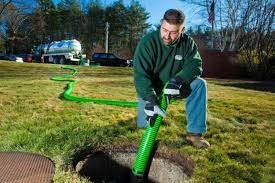Septic system maintenance is important to a home’s plumbing and sewer system. Regular cleanings and inspections can prevent major problems and add value to your property when it’s time to sell.
Licensed septic professionals can inspect, pump and clean septic tanks and drain fields. They can also perform repairs, make alterations and provide design services.
Regular Inspections
Professionals are trained to prioritize safety when handling sewage and equipment. They know how to open septic tank lids without exposure and can bring the proper gear to handle toxic gases, including hydrogen sulfide and methane. They also have the experience and training to recognize everything from fungi to protozoa that a layperson might need to see. Professional septic services can identify and repair early signs of clogs, drain field failure and soil conditions that affect the absorption and percolation rate of the wastewater. They can also recommend and implement landscape management practices that keep trees and shrubs away from the septic drain field, where they can block the flow of wastewater and prevent erosion and flooding. In addition to regular septic system cleaning and pumping services, homeowners can reduce the load on their septic systems by conserving water and avoiding flushing chemicals or items that don’t biodegrade.
Pumping
Getting your septic tank pumped regularly can extend its lifespan. This allows the septic system to operate as designed rather than straining your home’s pipes and other plumbing components. The amount of wastewater your home generates can influence how often you need to get the septic tank pumped. If you have a large household, your tank must be pumped more often than one with fewer people living in it. Other factors that influence the frequency of septic tank pumping include the septic tank size and the location of your septic system. The tank size determines how much water it can hold, while the soil in your yard affects how quickly the waste can filter into groundwater. You can also reduce your septic system’s workload by limiting how much wastewater you produce. Take shorter showers, spread laundry loads, and use water-saving toilets and faucets throughout your home. Similarly, keep trees and other plants away from the septic drain field to prevent root penetration that can clog or damage your septic system.
Cleaning
Septic systems help homeowners live in rural areas. These systems treat household wastewater, allowing for safe disposal of waste and recycling the water that filters back into the soil. However, septic tanks can become contaminated with bacteria or fungus if not maintained regularly. Those contaminants can enter nearby waterbodies and contaminate drinking water wells, especially during heavy rains or severe flooding.
In addition to professional cleaning and pumping, homeowners can protect their septic system by reducing the amount of wastewater they use. Limiting toilet flushes and showering durations helps reduce water usage, as does switching to non-chemical cleaning products that won’t harm the waste-eating microorganisms in the septic tank or drain field. It’s also important to keep plants and trees away from the septic tank, drain field and absorption zone. This prevents roots from invading the septic system and clogging the pipes.
Maintenance
Septic systems are crucial for homes without public sewers. They allow people to live in rural areas where running pipes to the town’s sewer system would be too costly. However, septic tanks also have disadvantages, including the need for regular maintenance and inspections. The most common septic tank problems are unusual blockages, but other issues can also occur. Septic system professionals are trained to handle all sorts of septic tank issues and can fix moderate problems before they become major ones. In addition to septic tank cleaning, septic technicians can help keep a homeowner’s septic system healthy by recommending preventative measures. These include avoiding flushing items that aren’t meant to be there (including feminine hygiene products, paper towels, and cigarette butts), keeping tree roots away from the drain field, and using root killers regularly. These steps can all extend a septic system’s lifespan so it will continue working properly for years.
